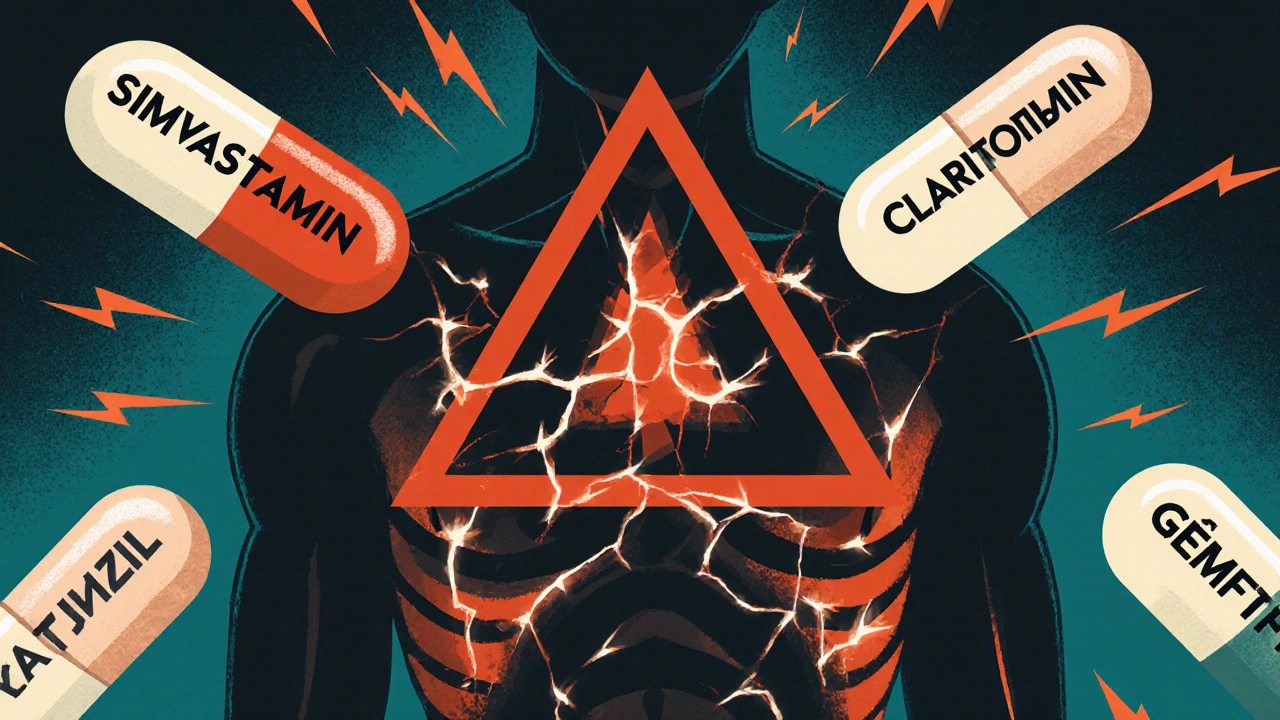Statin Interactions: What You Need to Know About Drug Conflicts
When you take a statin, a class of cholesterol-lowering drugs used to reduce heart attack and stroke risk. Also known as HMG-CoA reductase inhibitors, they work by blocking a key enzyme in your liver that makes cholesterol. But statins don’t work in a vacuum. Many common medications, supplements, and even foods can interfere with how they’re processed—leading to muscle damage, liver stress, or worse. If you’re on a statin like atorvastatin or simvastatin, you’re not just managing cholesterol—you’re managing a web of possible drug interactions.
One of the biggest risks comes from mixing statins with certain antibiotics, antifungals, or HIV drugs. For example, clarithromycin or itraconazole can spike statin levels in your blood, raising your chance of rhabdomyolysis—a serious condition where muscle tissue breaks down and can wreck your kidneys. Grapefruit juice is another silent troublemaker. Just one glass can slow down how fast your body clears out some statins, turning a safe dose into a dangerous one. Even over-the-counter supplements like red yeast rice, which naturally contains a statin-like compound, can pile up and cause problems if you’re already taking prescription statins.
It’s not just about what you take—it’s about your body’s ability to handle it. People with liver disease or kidney issues, like those covered in posts about atorvastatin and kidney health, need extra care. Statins are cleared by the liver, so if your liver is already struggling, adding another drug that uses the same cleanup system can backfire. That’s why doctors check liver enzymes before and after starting statins. And if you’re on multiple meds—say, a blood pressure pill like losartan or a diabetes drug like saxagliptin—it’s easy to miss how they might be working against each other. These aren’t just theoretical risks. Real people end up in the ER because they didn’t know their fish oil or vitamin D supplement was quietly messing with their statin.
You don’t need to stop your statin. But you do need to know what’s in your medicine cabinet. Talk to your pharmacist before adding anything new—even herbal teas or magnesium pills. Keep a list of everything you take, including doses and how often. If you start feeling unexplained muscle pain, weakness, or dark urine, don’t wait. These are red flags that your body is under stress from a bad interaction. The posts here cover real cases where statins collided with other treatments—from kidney function concerns to liver enzyme spikes—and what actually worked when things went wrong. You’ll find clear comparisons, patient-tested advice, and no fluff. What you’re about to read isn’t just info—it’s a checklist to keep you safe.
Statin Interactions That Increase Myopathy Risk: What You Need to Know
Statins prevent heart disease, but certain drug interactions can trigger dangerous muscle damage. Learn which medications raise myopathy risk, how to spot early signs, and safer statin alternatives.
Read more
